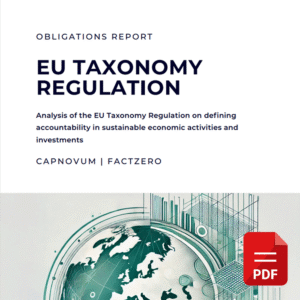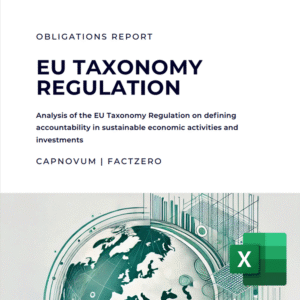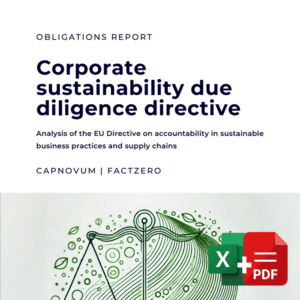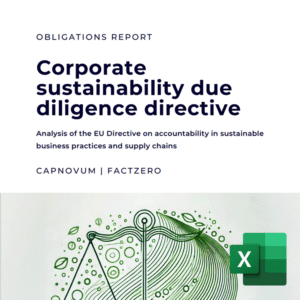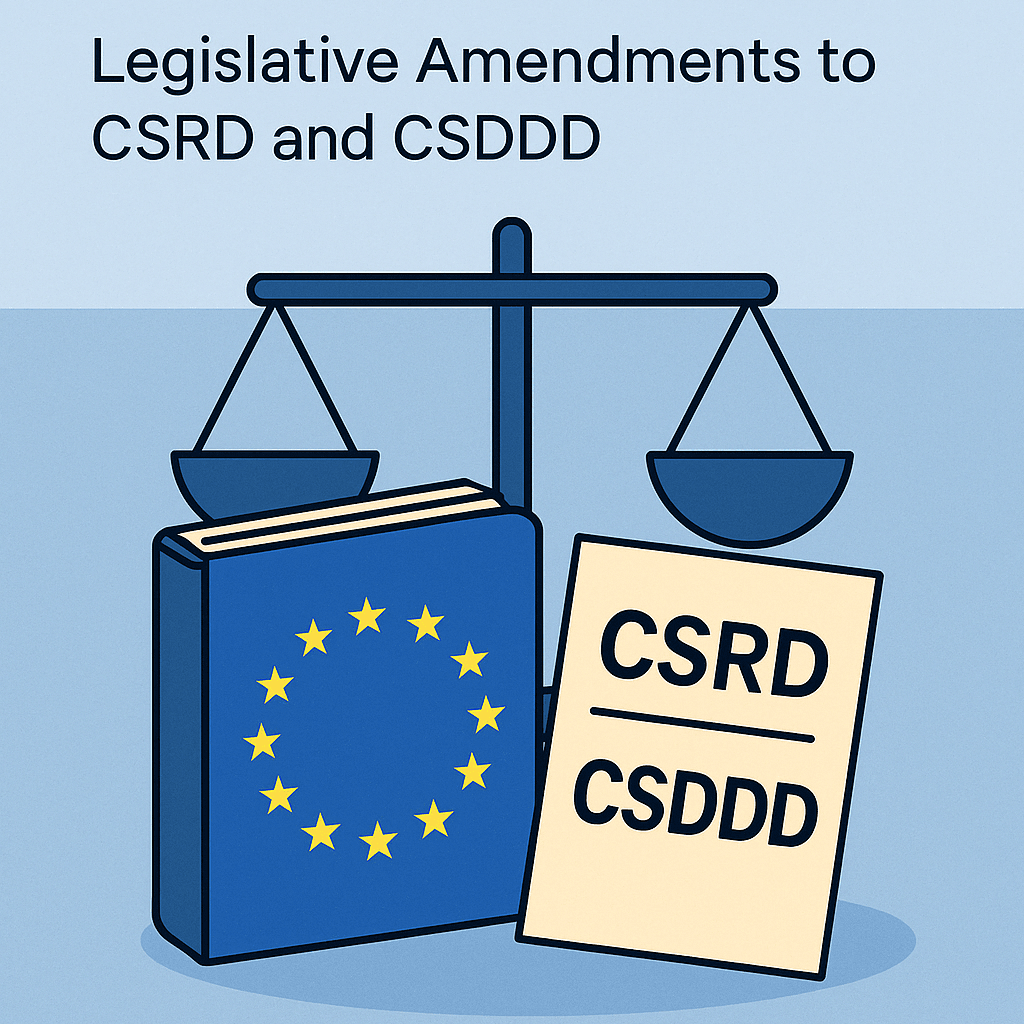
Abstract
In April 2025, the European Parliament approved a legislative package of reforms, collectively referred to as the “Omnibus Package,” which introduces substantial amendments to the Corporate Sustainability Reporting Directive (CSRD) and the Corporate Sustainability Due Diligence Directive (CSDDD). The amendments aim to streamline regulatory obligations, enhance coherence, and extend timelines for compliance, thereby alleviating burdens on affected companies. This document presents a detailed analysis of the key changes and their implications.
Introduction The EU Omnibus Package
The CSRD and CSDDD constitute pivotal components of the European Union’s regulatory framework on corporate sustainability and due diligence. The CSRD mandates comprehensive sustainability disclosures, while the CSDDD imposes human rights and environmental due diligence obligations. The Omnibus Package, introduced by the European Commission in February 2025, was fast-tracked and formally approved by the European Parliament on April 3, 2025. This analysis reviews the structural, procedural, and substantive modifications embedded in the Package.
Key Amendments to the CSRD
- Postponement of Reporting Deadlines: Companies initially scheduled to report under wave 2 (2026) and wave 3 (2027) will now benefit from a two-year postponement. Large companies with more than 250 employees are now expected to report for the first time in 2028 for the previous financial year, while listed SMEs will begin reporting one year later.
- Employee and Turnover Threshold Adjustments:
- The employee threshold for in-scope EU reporting entities is raised to over 1,000 employees.
- For non-EU parent companies, the EU net turnover threshold increases from €150 million to €450 million.
- Revisions to the European Sustainability Reporting Standards (ESRS):
- The Commission will reduce the number of required data points.
- Clarification of ambiguous provisions.
- Enhanced consistency with parallel EU legislative instruments.
- Sector-Specific Standards and Assurance Levels:
- The Commission will forgo development of sector-specific ESRS.
- Sustainability reports will now be subject to limited assurance only.
- Voluntary Reporting Standards:
- A voluntary standard, modeled on the SME standard developed by EFRAG, will be introduced for companies no longer in CSRD scope (“value chain cap”).
- Preservation of Double Materiality Principle:
- The dual focus on financial and impact materiality remains unchanged.
Key Amendments to the CSDDD
- Extended Timelines:
- Member States will have until 26 July 2027 to transpose the rules into national law.
- The largest in-scope companies (EU companies with over 5,000 employees and turnover above €1.5 billion, and non-EU companies with the same EU turnover) will apply the rules from 2028. The same date applies to companies in the second wave (3,000+ employees and €900 million turnover).
- Scope of Due Diligence Obligations:
- Obligations now limited to direct business partners, except in cases where companies have plausible indications of adverse impacts in their indirect supply chains.
- Revisions to Enforcement Mechanisms:
- The obligation to terminate business relationships for severe impacts is removed.
- Assessment intervals extended from one year to five years.
- Civil Liability Provisions:
- National legal regimes will determine whether domestic liability laws supersede foreign jurisdictional rules.
- Alignment with CSRD Transition Plans:
- Harmonization of climate transition plan requirements across both directives.
Legislative Instruments Encompassed in the Omnibus Package
- Amendment to the CSRD and CSDDD directives.
- Draft delegated act revising Taxonomy Disclosures.
- Amendments to the Carbon Border Adjustment Mechanism Regulation.
- Modifications to the InvestEU Regulation.
Discussion
The Omnibus Package is a calibrated response to growing industry concerns regarding the operational complexity and cost of compliance. By adjusting thresholds, reducing scope, and providing additional time for implementation, the EU aims to uphold its sustainability objectives while minimizing undue regulatory pressure. However, the deferral of key provisions and dilution of due diligence requirements may elicit concern from civil society stakeholders regarding enforcement efficacy.
Conclusion
The reforms introduced by the Omnibus Package reflect an evolving EU strategy to balance regulatory ambition with pragmatic implementation. These changes will significantly affect both EU and non-EU companies operating within the Union and demand proactive adjustments to compliance strategies.
References
European Parliament (2025). Sustainability and due diligence: MEPs agree to delay application of new rules. April 3, 2025.



